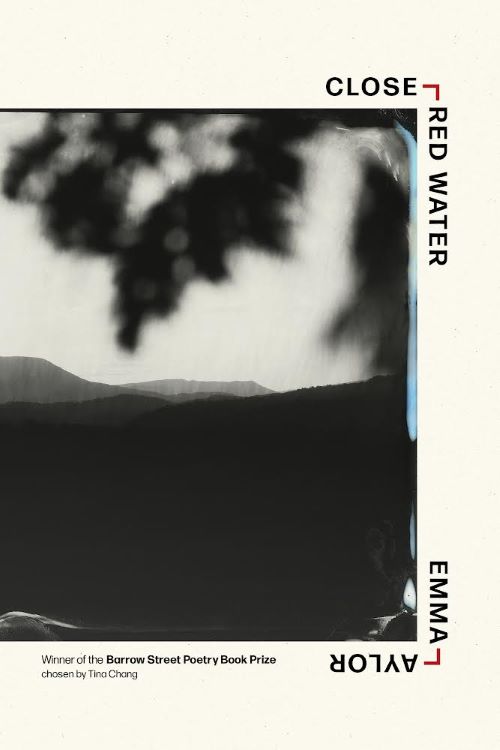If you’ve seen a prayer spoken, you know something of what I mean. The purpose of the prayer list, read by the priest aloud, prior to a silence, is to hold names’ wetted wafers in the mouth. A person creaks like small gravel—you told me that.You told me trees make speech sounds, growing.You’re not one person, but it’s clear you’re far from the plot I’ve made. Hard ground. Every cold recalls first cold, as in my Virginia’s first winter, a wind half-silvered, sharp as a mirror we’re given back through . but through which we can’t see. Same as now. In Appalachiasometimes a German custom kept: sink a nail in a tree at the height of a child, to cure her. This presumes the child has time to grow past what’s driven. Presumes incantation and walking eastward. Certain conditions must be met that other events may follow. The list keeps growing in quiet. The mirror might show a fix and distanceyou didn’t intend. Land slips. Its red color.You take the child from home to tree before day; neither of you may speak a word. And if you’ve seen a handmade nail, you can’t help but draw the modern ones backward, the way art of dark caves portends our paintings: an abiding absorption in effigies, marks, and askingthat something happen, and in the way we want.
Driven Nail Cure
Feature Date
- February 22, 2024
Series
Selected By
Share This Poem
Print This Poem
“Driven Nail Cure” from Close Red Water: by Emma Aylor.
Published by Barrow Street on October 15, 2023.
Copyright © 2024 by Emma Aylor.
All rights reserved.
Reproduced by Poetry Daily with permission.

Emma Aylor’s Close Red Water is the 2022 winner of the Barrow Street Poetry Book Prize chosen by Tina Chang. Aylor grew up in Bedford County, Virginia, next to the Blue Ridge Mountains. Her poems have appeared in New England Review, AGNI, Colorado Review, Poetry Daily, the Yale Review Online, and elsewhere, and she received Shenandoah’s Graybeal-Gowen Prize for Virginia Poets. She holds an MFA from the University of Washington and is currently a PhD candidate at Texas Tech University.
An intense and haunting debut, Emma Aylor’s Close Red Water is an otherworldly calling, rich with detail, aching with a past that makes its way home to a field, a house, a room, daring to edge ever closer to the present. These poems are deftly crafted, drawing on the intimacies of landscape and nature, not as backdrop, but as characters—crows, ravens, honeycombs, salt-bleached and -broken trees—who interact with close kin, both here and departed. This is an astonishing collection where the ghosts of memory and forgetfulness live most brightly and alive here.
—Tina Chang
It’s fitting that the first phrase in the first poem of this superb first book is “The place I know…” Close Red Water is so authentically and so movingly focused on a single and loved locale that even the occasional poem that begins elsewhere almost always finds its way back to Virginia. And yet, there is always in this collection the sad recognition that one cannot return, not really. Aylor’s poems, to their great credit, are attuned to what can’t be fathomed without sustained and unwavering attention. What a rarity—and what a delight—in our fractured and unfocused age.
—Davis McCombs
Poetry Daily Depends on You
With your support, we make reading the best contemporary poetry a treasured daily experience. Consider a contribution today.




